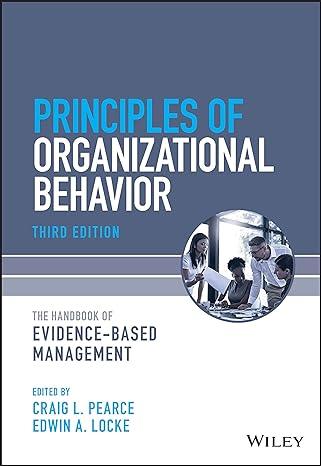Identify your dominant conflict management approach and consider the questions associated with each approach. A = Avoiding
Question:
Identify your dominant conflict management approach and consider the questions associated with each approach.
A = Avoiding - you tend to avoid conflicts that occur. Ask yourself, "Am I avoiding all conflicts (task and relationship)? How is my reliance on avoiding helping or hindering my team's performance?"
C = Compromise - the higher the score the more likely you are to compromise when faced with a conflict. While meeting in the middle may seem fair, sometimes you can miss opportunities to find creative solutions that are better than average for everyone. Ask yourself, "When will compromise be the most or least effective way in dealing with my team's conflict?"
F = Force - People who score high on forcing like to get their way, regardless of others' concerns. While this might be satisfying to you in the short term, it can leave other team members feeling resentful and unwilling to work with you in the future. Ask yourself, "Under what circumstances do I tend to rely on forcing? What are the typical repercussions that I face? What alternative approaches are usually available to me?"
P = Problem-solve - Problem-solvers work hard to find solutions that meet the needs of everyone involved in the conflict. They try to satisfy others without losing sight of their own interests. Ask yourself, "How does problem-solving best promote cooperation within a team? What are the costs of using this approach?"
Y = Yield - A yielding approach is the opposite of forcing. Yielders give in to the demands of others. This approach may end the conflict, but can leave you feeling taken advantage of. However, yielding can lead to a strategy of reciprocation, that is, "I'll give in now, but you owe me." Ask yourself, "What are the risks of relying on yielding, especially when you consider that open discussion of alternatives and respect are critical to group success?"
Step by Step Answer:

Principles Of Organizational Behavior The Handbook Of Evidence Based Management
ISBN: 9781119828549
3rd Edition
Authors: Craig L. Pearce, Edwin A. Locke





